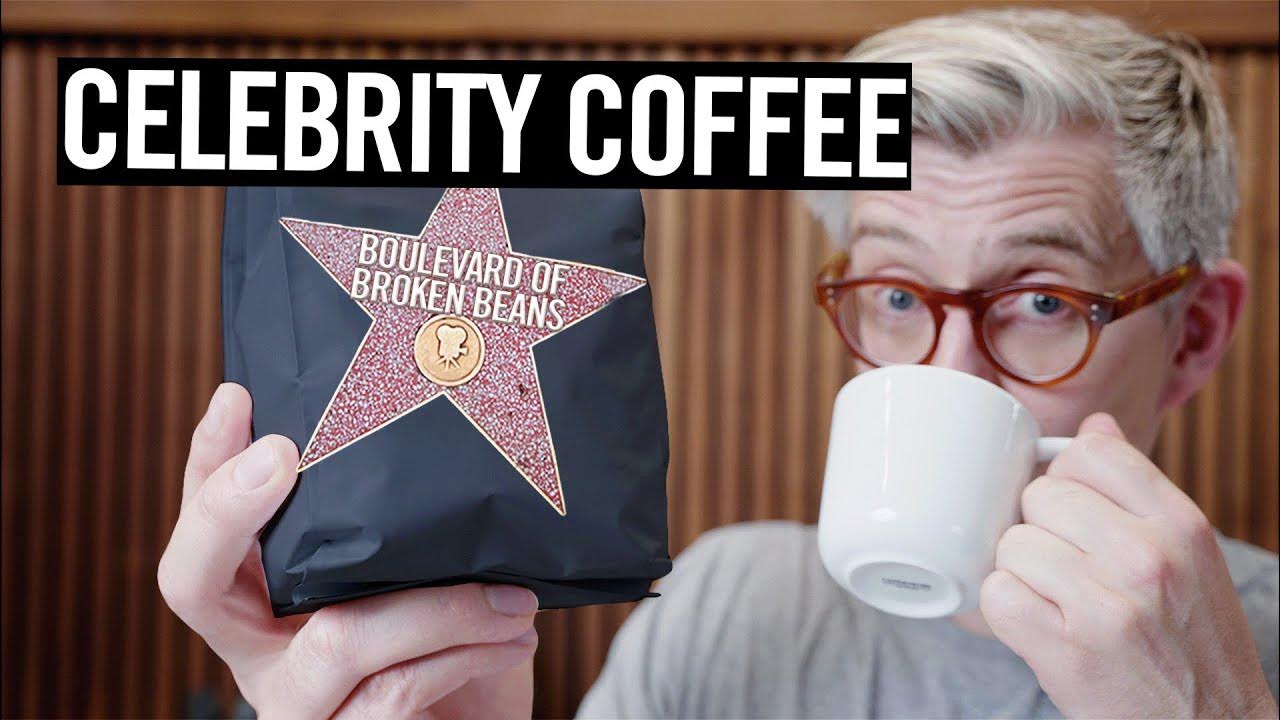Celebrity coffee brands are becoming a rapidly growing trend. This rise follows celebrities’ ventures into wineries and tequila brands.
This article explores why celebrities are diving into the coffee business, the different approaches they take, and how these endeavors are managed. Finally, it delves into how these brands actually taste.
The Two Types of Celebrity Coffee Brands
Celebrity coffee brands mainly fall into two categories: merch and aspirational. The merch type is often started by musicians or groups as an additional revenue stream. Concerts are not only about music but also about merchandise like T-shirts. Coffee, with its recurring revenue potential, is an attractive addition.
These coffee brands are designed to potentially sell every month. Fans might buy coffee regularly, similar to how they buy merchandise like T-shirts at concerts. This ongoing revenue appeals especially to musicians and bands, providing a steady income source beyond their performances.
Aspirational Coffee Brands
In contrast to merch-related coffee brands, aspirational ones aim to build a new relationship with a broader audience. Take Hugh Jackman’s Laughing Man brand, for example. It started in 2009 and was sold to Keurig in 2014. These brands establish a distinct identity beyond their founders’ fame, hoping to attract consumers who may not have a pre-existing connection to the celebrity.
Unlike merch brands tied to a celebrity’s identity, aspirational brands aim to stand on their own. They target a wider audience, banking on the quality and story of the coffee rather than just the celebrity’s name. This approach presents both opportunities and challenges, as it requires creating a brand that can appeal to a diverse customer base.
Business Models and Operations
Interestingly, none of these celebrity coffee brands operate their own coffee roasting facilities. Instead, they source pre-roasted products from manufacturers who create the coffee to their specifications. This approach is practical and allows celebrities to focus on marketing rather than production.
Emma Chamberlain’s Chamberlain Coffee is a notable example. Initially perceived as merch, it soon attracted significant investment. However, unlike some coffee enthusiasts, Chamberlain does not operate or run a roasting facility. Her brand buys pre-made coffee bags from manufacturers and sells them to consumers. This business model aims at profitability through effective marketing rather than direct coffee production.
The Goal of Building a Brand
For many celebrities, creating a coffee brand is more about establishing a lasting enterprise than just making quick money. Dwayne ‘The Rock’ Johnson exemplifies this trend. Despite being a top-earning actor, he highlights his entrepreneurial ventures in his social media bio. Celebrities see building successful brands as the ultimate form of achievement, shifting the focus from fame to entrepreneurial prowess.
This new form of success reflects a broader societal trend. Business acumen and brand-building have become prestigious, often linked to personal and professional fulfillment. Celebrities, leveraging their fame, can launch and grow businesses that resonate with their audience. This shift from entertainment to entrepreneurship showcases a new dimension of success.
Contract Manufacturing vs. Specialty Roasting
The coffee industry is divided into commercial roasting and specialty coffee roasting. Commercial roasting involves large-scale production for brands, while specialty roasting focuses on quality and unique flavors. Passionate roasters source specific beans and roast them with care, targeting coffee aficionados who appreciate the diverse flavors of high-quality coffee.
The contrast between contract manufacturing and specialty roasting highlights different priorities. Commercial roasting aims at consistency and scale, while specialty roasting values creativity and quality. This divergence illustrates how the coffee industry caters to both mass-market and niche consumers, each with distinct expectations and preferences.
Taste Testing Celebrity Coffee
Celebrity coffee brands undergo rigorous taste tests to ensure they meet consumer expectations. The flavors and quality must align with the brand’s image. Some coffees may highlight unique profiles like berries and optimism, while others focus on conventional tastes.
In a blind taste test, various celebrity coffee brands were evaluated. Coffees from Machine Gun Kelly, Emma Chamberlain, and others were compared based on their flavor profiles. The results revealed that while some brands excelled in taste, others were more about marketing buzz than coffee quality. This blending of marketing and actual product quality illustrates the challenges and opportunities in the celebrity coffee space.
The Future of Celebrity Coffee Brands
The success of these coffee brands depends on their ability to merge celebrity appeal with product quality. As the market grows, these brands must continuously innovate and maintain high standards to keep consumers coming back.
The future looks promising for celebrity coffee brands. However, they must balance their celebrity status and business operations to sustain growth. With the right strategies, these brands can carve a niche in the competitive coffee market, blending star power with great coffee experiences.
Celebrity coffee brands offer an intriguing blend of fame, business, and quality. They represent a shift from mere celebrity merchandise to substantive enterprises.
These brands’ future success lies in their ability to innovate and consistently deliver quality products. Consumers win when they get great coffee backed by a fascinating story.
